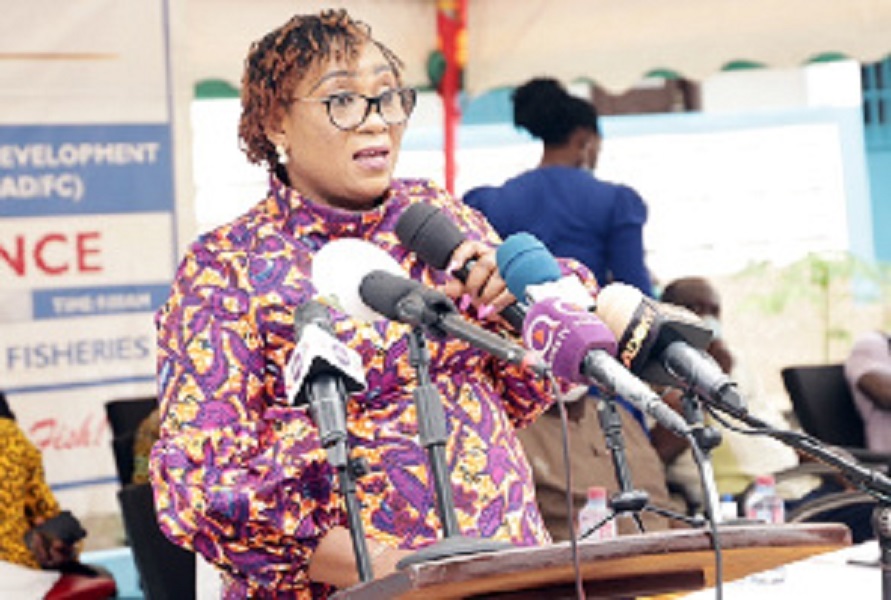The Ministry of Fisheries and Aquaculture Development (MoFAD) has disclosed that an estimated amount of US$2.5million is needed to fully tackle and bring an end to the menace of illegal, unreported and unregulated fishing (IUU) in the country’s waters.
Fisheries Minister Mavis Hawa Koomson was speaking during a plenary session at the 2023 Ocean Conference in Panama, and said: “MoFAD is committed to ensuring that 100 percent of industrial vessels licenced to fish in Ghana’s exclusive economic zone (EEZ) deploys electronic monitoring systems, including the use of cameras to monitor and document activities taking place on vessels.
“We estimate an investment of up to US$2.5million to fulfil this commitment through partnerships between the ministry, industry and development partners,” Madam Koomson said.
The deployment and piloting of these technologies, expected to begin in the second quarter of this year, is to ensure industrial vessels abide by the country’s fisheries’ rules and regulations.
IUU fishing remains one of the greatest threats to marine ecosystems in Ghana, due to its potent ability to undermine national and regional efforts in conserving and managing fish stocks.
The challenge has been contributing to depleting fish stocks, in addition to threatening marine biodiversity, livelihoods while exacerbating poverty and food insecurity.
It is projected the country loses over US$200million annually due to IUU fishing, according to data from the Environment and Natural Resource Research Initiative (ENRRI – EfD Ghana).
However, Madam Koomson emphasised that the technologies, when put in place, will not only advance transparency but also ensure these vessels are fishing in compliance with the law.
Under Ghana’s laws, illegal fishing activities like ‘saiko’ attract fines of between US$100,000 and US$2million, or a minimum of US$1million for taking onboard juvenile fish, using prohibited fishing gear, or fishing in prohibited zones (e.g. the inshore exclusive zone reserved for artisanal fishers). Minimum fines can increase to US$4million in the case of repeated offences.
However, many offenders are able to find alternatives to beat such harsh punishment.
The ENRRI – EfD Ghana, at a capture fisheries stakeholder conference held in January this year, told the B&FT that many such offenders do not pay the required fines as they find ways to beat the laws.
The fisheries sector contributes significantly to the socioeconomic development of Ghana. An estimated three million people are employed along the value chain, while the sector contributes about 1.2 percent to gross domestic product.
Source: thebftonline.com

